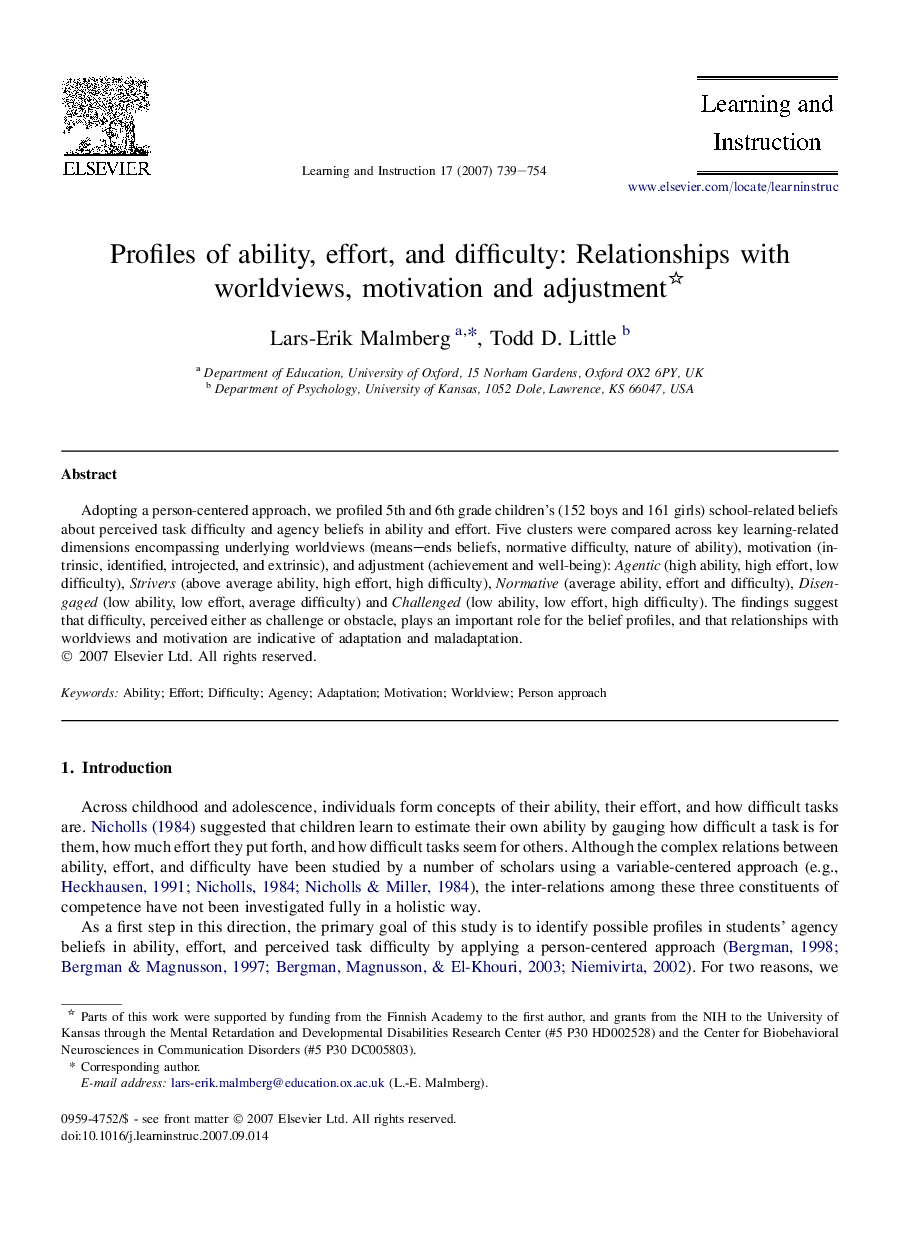| Article ID | Journal | Published Year | Pages | File Type |
|---|---|---|---|---|
| 366051 | Learning and Instruction | 2007 | 16 Pages |
Adopting a person-centered approach, we profiled 5th and 6th grade children's (152 boys and 161 girls) school-related beliefs about perceived task difficulty and agency beliefs in ability and effort. Five clusters were compared across key learning-related dimensions encompassing underlying worldviews (means–ends beliefs, normative difficulty, nature of ability), motivation (intrinsic, identified, introjected, and extrinsic), and adjustment (achievement and well-being): Agentic (high ability, high effort, low difficulty), Strivers (above average ability, high effort, high difficulty), Normative (average ability, effort and difficulty), Disengaged (low ability, low effort, average difficulty) and Challenged (low ability, low effort, high difficulty). The findings suggest that difficulty, perceived either as challenge or obstacle, plays an important role for the belief profiles, and that relationships with worldviews and motivation are indicative of adaptation and maladaptation.
